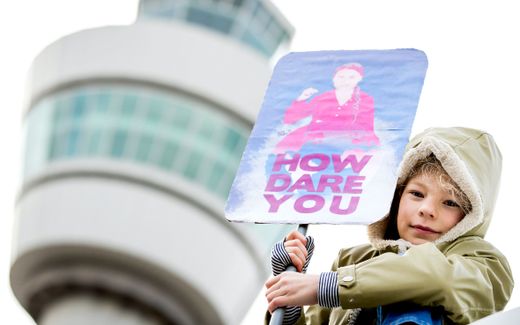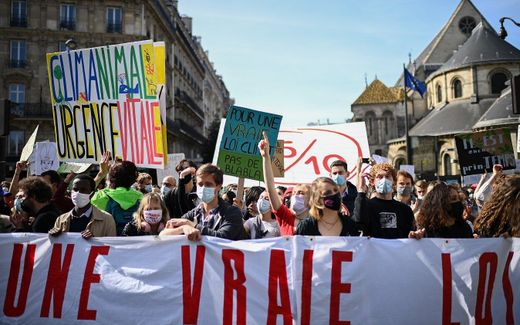Never inhaling kerosine again: why flights are so harmful
21-07-2022
Christian Life
Jacomijn Ariakhah, Terdege
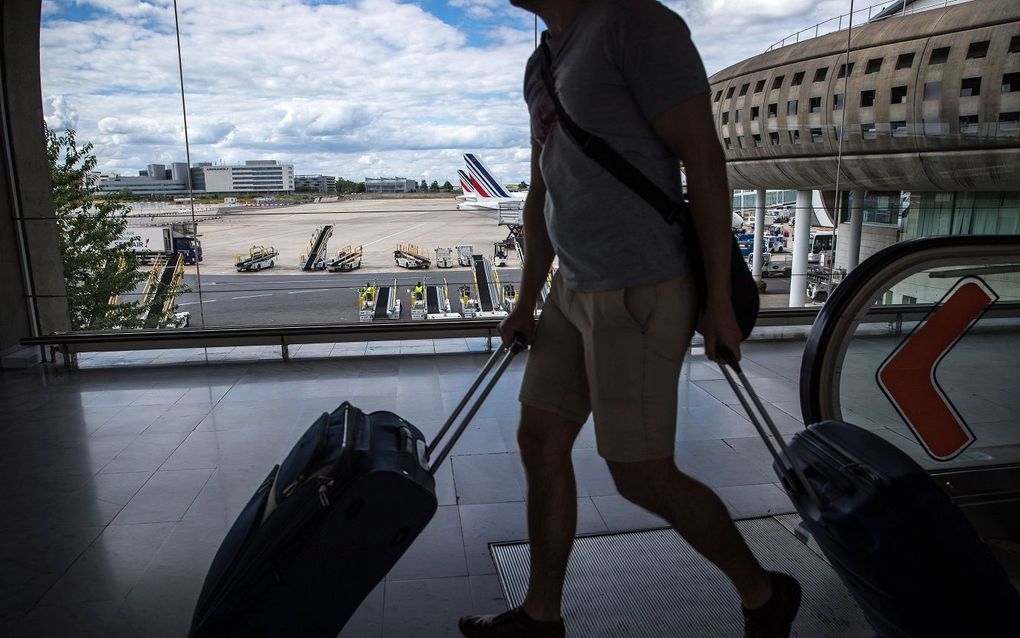
Photo EPA, Christophe Petit Tesson
Christian Life
We are doing pretty good. We separate waste, drive more economical cars, eat less meat and buy more often second-hand items. But there is one thing we often conveniently forget: that our holidays are bad for the environment. Or are they not?
Ten years ago, I was proud of the stamps in my passport: Turkey, Georgia, United States, Singapore, Australia, and New Zealand. In my head, I made a list of all the countries I still wanted to visit.
Now, more than ten years later, the situation has changed. Not only is there little time left for distant travels. Also, playing voyager of discovery is not as attractive as it used to be because our luxury trips seem disastrous for the environment.
Facts
By 2036, it is estimated that 7.8 billion people worldwide will be flying. That is double the number today.
If nothing changes, aviation in 2070 will emit as much CO2 as the world can to meet the Paris Agreement.
Is that really the case? Somehow I do not quite want to believe it. Is that one holiday a year that takes you out of the country such a bad thing?
I know people who think the same. On our Facebook page, too, people react somewhat carelessly to whether sustainability plays a role in their choice for a holiday. One of the reactions: "If you sometimes see for how little money you can fly to a sunny destination, the choice is easily made. And we love flying!" Another: "Actually, we don't pay much attention to that. We love going on cruises." Only one person suffers from flight shame: "It's great to be in sunny places within a few hours. But I do feel guilty about the environmental pollution."
Concern
How dramatic is it, exactly, flying? And is a long car journey something we should not want either? According to Paul Peeters, Professor of Sustainable Transport and Tourism at Breda University of Applied Sciences, the answer is not that simple. It all depends on where we fly or drive to, on with how many people and how we spend our holiday. "Trips to Kyrgyzstan or New Zealand are both far away, but the environmental impact differs by a factor of three."
The fact is that we must adapt our polluting Western lifestyle. Earlier, 89 authoritative polar scientists published their gloomy conclusion in the journal Nature: the ice on Greenland and the North Pole is melting much faster than expected. "It is very worrying what is going on," Peeters says. Because melting ice disturbs the balance of the climate system. "Take permafrost (deep layer of frozen soil near the poles, JA), for example. When temperatures rise, part of the permafrost melts. Underneath it is the greenhouse gas methane. Methane is released as soon as the permafrost melts, further exacerbating the negative effect of warming. We call this a tipping point. We thought it would take decades to reach it, but we have already reached it."
The solution? "Within thirty years, we must eliminate all emissions (harmful emissions, JA). Then there is still a chance we can keep climate change to 1.5 or 2 degrees. Provided that the permafrost case and other 'tipping points' don't make everything go completely haywire."
Footprint
The ecological footprint is a good measure of your personal impact on the environment — the more polluting your life, the bigger your footprint. And the more people have a large ecological footprint, the harder it becomes to preserve the earth in its current state for future generations.
How do you keep your footprint small? For example, living in a well-insulated house, using electricity from your solar panels, consuming little gas, driving an economical or electric car, eating little or no meat, producing as little waste as possible and buying only a few new clothes.
How you spend your holidays can also considerably influence that footprint. Peeters: "If you go on holiday to another continent by plane, you can easily double your annual footprint. The biggest problem is the long-haul flights. Taking the car to the Ardennes or Texel makes little difference to your footprint. Flying to Bordeaux or Marseille with a "low-cost carrier" that fits many people also ensures relatively low emissions. But if you go to Australia, the emissions are enormous.
Save the planet
I am not quite ready for that yet. So if we all cancel our nice trips to faraway places, we will save the planet? Surely not? "The tourism sector is only a tiny sector in our economy, accounting for about 2 per cent, but it is responsible for between 5 and 11 per cent of climate change. That's a lot for such a small sector."
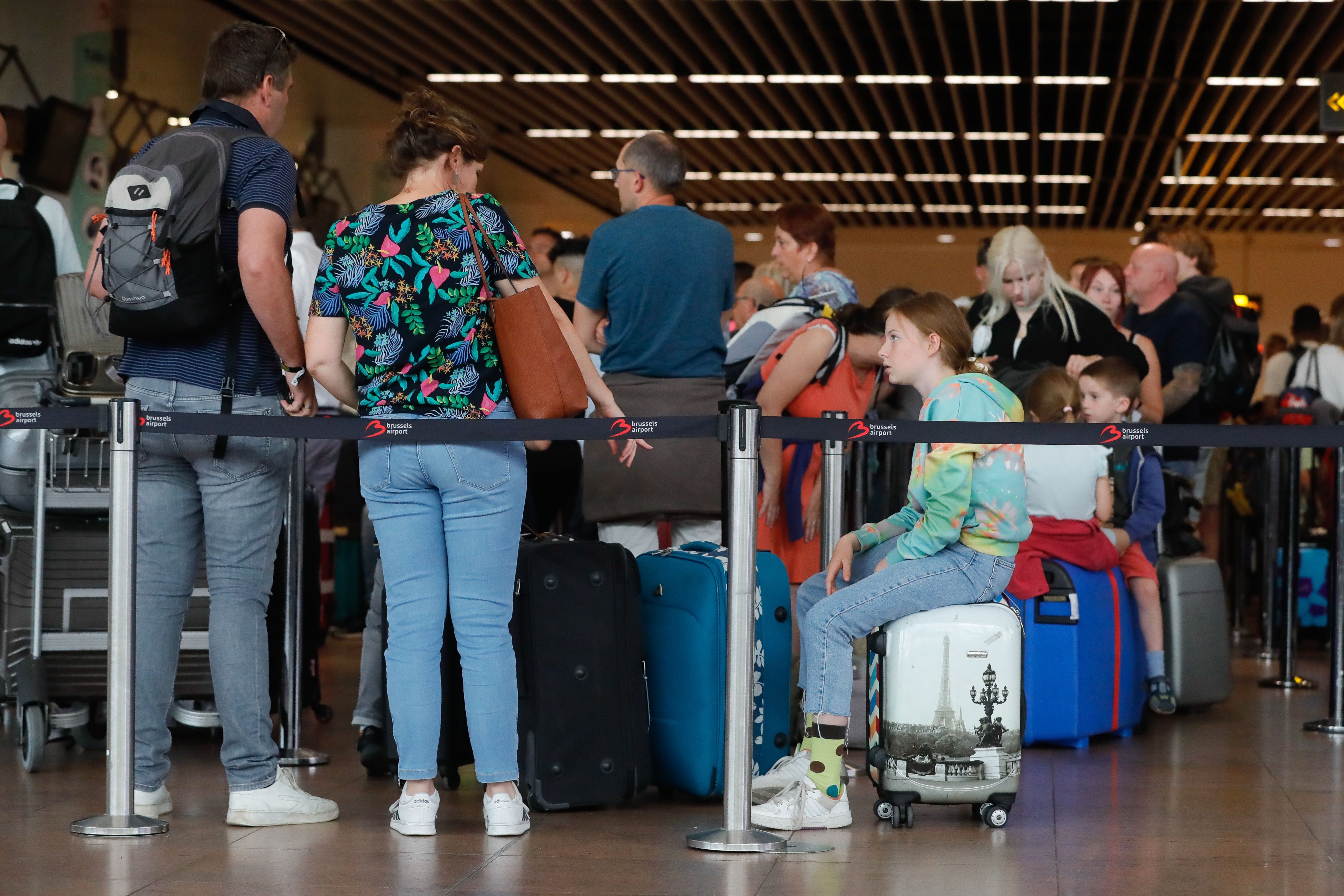
So, taking a more conscious approach to holidays is a good thing, especially considering that the aviation sector is growing rapidly. According to estimates, the number of passengers will have doubled by 2036. And if nothing changes, by 2070, the aviation sector alone will be responsible for the total number of emissions that the entire world is allowed to produce according to the Paris agreements. "It is a matter of wanting it and organising together that we want it. We simply must get rid of these emissions very quickly. Otherwise, the climate system will become unstable." And so our travel system must become more environmentally friendly. Because, says Peeters, things will only really change for the better if something changes within the travel sector itself.
Inhaling kerosine
Also, replacing air travel with train travel is not as easy as it sounds. Even on a developed continent like Europe, individual countries have so far failed to establish a good international train network beyond Paris, Berlin and London. Connections do not connect, and overhead lines and track dimensions differ from country to country. And where can you quickly book a ticket for a quick trip to your campsite near Venice? Is there such a thing as a fast train journey? No travel agency has the overview.
No wonder many people prefer to wait rather than cancel their quick trips. "I certainly understand that," says Peeters surprisingly. "At the same time, you can show through your behaviour that it can also be done differently. Let's show that you don't have to fly for a pleasant holiday or a successful career. In this way, you create social support for the coming changes because resistance to them will be great. You need to change your mind. The idea that we all have to sniff jet fuel to have a good holiday has to go. At least until a way of flying has been found that is free of emissions.
Adventure
Rianne Helmus (23) from the Dutch town of Grijpskerk is someone who entirely agrees. With her husband Dirk-Jan, she travelled by train through Europe last summer. "It seemed very nice", she says, "but also much less damaging to the environment than flying. We are very concerned about the environment and have been trying to live sustainably since we got married."
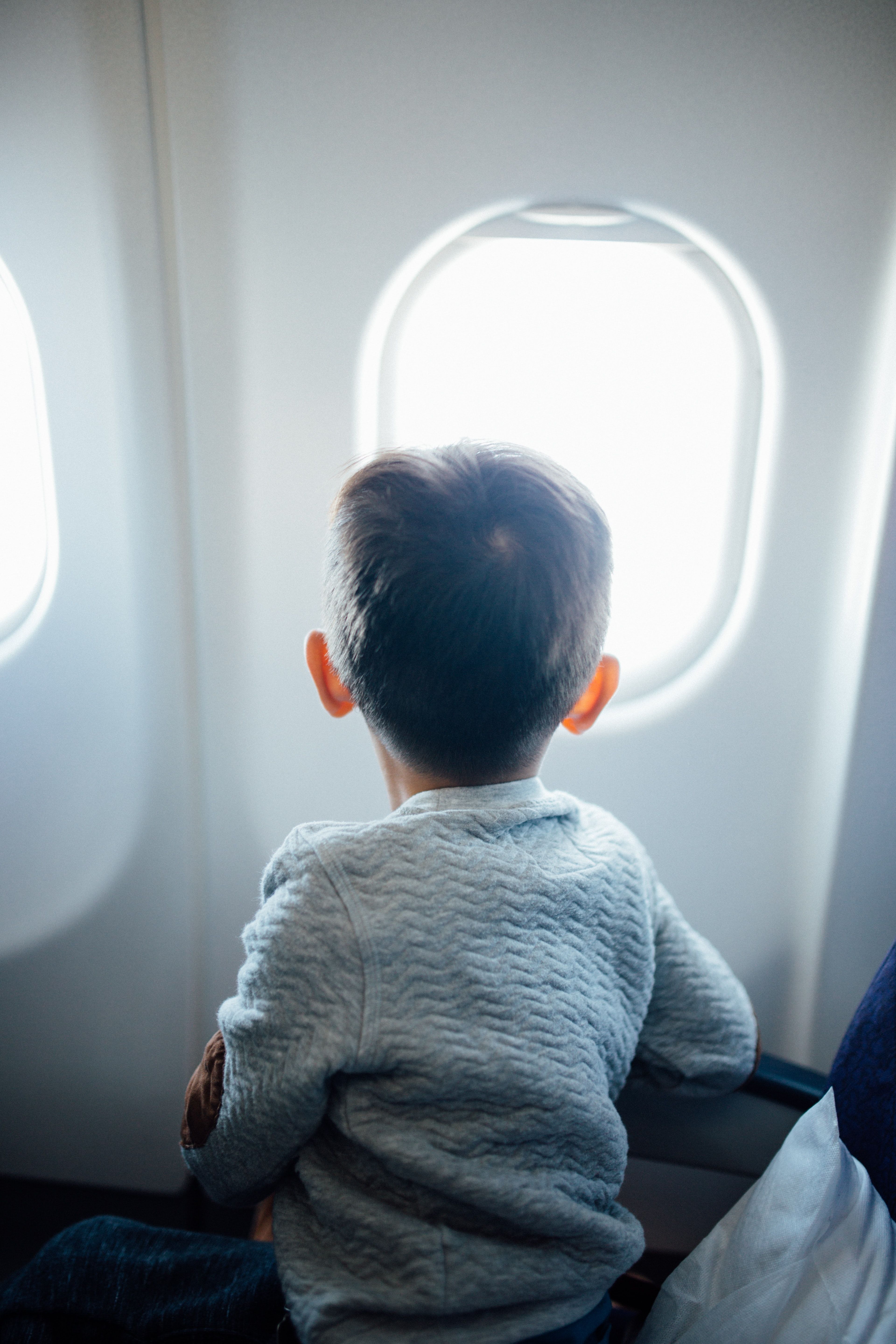
The two travelled through ten different countries. "You see a lot on the road when you travel by train. Of course, the journey also takes longer. Sometimes we spent a whole day on the train. We would leave early in the morning and arrive at our destination in the evening, after a lot of luggage. But it was a great adventure.
With their Interrail pass, they were allowed to travel by train for ten days in Europe within a month. Because they are in their early 20s, they also got a discount on the pass for young people.
They were not disappointed by the trains themselves. "Although it did depend a bit on which train we ended up in. There were these tiny diesel-powered trains in Romania, often with only one carriage. In the Czech Republic, on the other hand, we were on a very luxurious train, more luxurious than those in the Netherlands. But we were hardly ever delayed.
Rianne thinks the great thing about train travel is that it goes slowly. "It literally puts you to rest when you're on a train for a whole day." There is also more contact with the locals. "For example, we had to change trains in Slovenia, in a small village. We wanted to find something to eat there and walked through the streets with our backpacks. Then an old man came out and said: the restaurant is closed, but you can come and have dinner with me. After some hesitation, we did. He and a friend made us some food on a fire. We sat there with two old Slovenian men. After an hour, we returned to the station and got on the train."
Whether they would do it again? "Definitely, I enjoyed it very much."
Example
Peeters also sets a good example himself. Since 1996, he has stopped flying to save the environment. "I recently went to Mallorca by train and boat, and we saw dolphins and whales along the way. And I also enjoy travelling by train. My sister-in-law lives in northern Sweden, and we go there by train. That is a two-day journey via Denmark. It takes longer than flying and costs more, but you also get to see more.
Whether we will abandon the plane en masse in ten years, just as he did? Peeters does not dare to be so optimistic. But he does see change. "Four years ago, if I took the train to Norway, I would have to explain in detail why I was doing that. Now it is the other way round. If people tell me that they went to Prague by plane, they are the ones who apologise. You can see that in the figures. The use of the international train is growing strongly in the Netherlands; by dozens of percentages. Such an increase has never occurred before. In my opinion, this has everything to do with the discussion about climate change. The train to London is also used to a much greater extent. That is relevant because fewer flights depart daily from Schiphol in that direction.
For the reader who wants to celebrate sustainable holidays this year, he has another practical tip. "Think about what you expect from a holiday and come up with a location where you can do that without using the plane. Is it whale watching?
Seeing mountains? Swimming? You can do it all relatively close to home. For example, set yourself the goal of not flying for the next five years. Then you'll discover lots of other fun things you can do."
Practical tips
Here is how to limit your CO 2 emissions on holiday:
-Take the plane, ferry or cruise ship as little as possible. If you do choose these modes of transport, see if you can find the most eco-friendly option.
-Limit your waste, just like at home.
-Use domestic flights as little as possible.
-Check online in advance to see what impact your holiday will have on the environment and whether it makes a difference if you choose a different mode of transport.
-If possible, try to compensate for your emissions with a financial contribution. Some airlines already offer this as a standard. You can also choose to offset your emissions through an organisation. The money is then invested in, for example, tree planting or other climate-friendly projects.
-Going by car? Hire an electric car.
Related Articles


